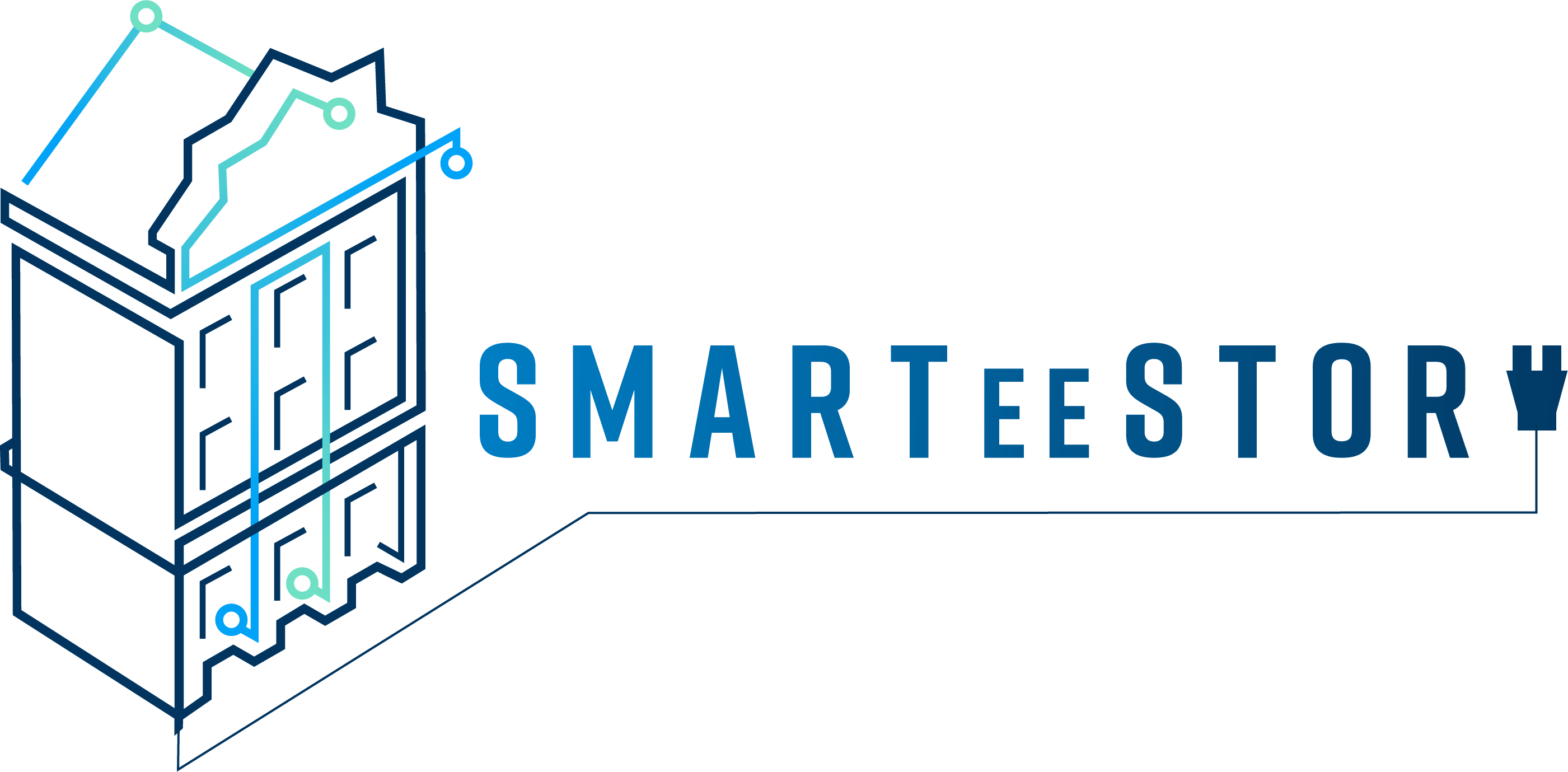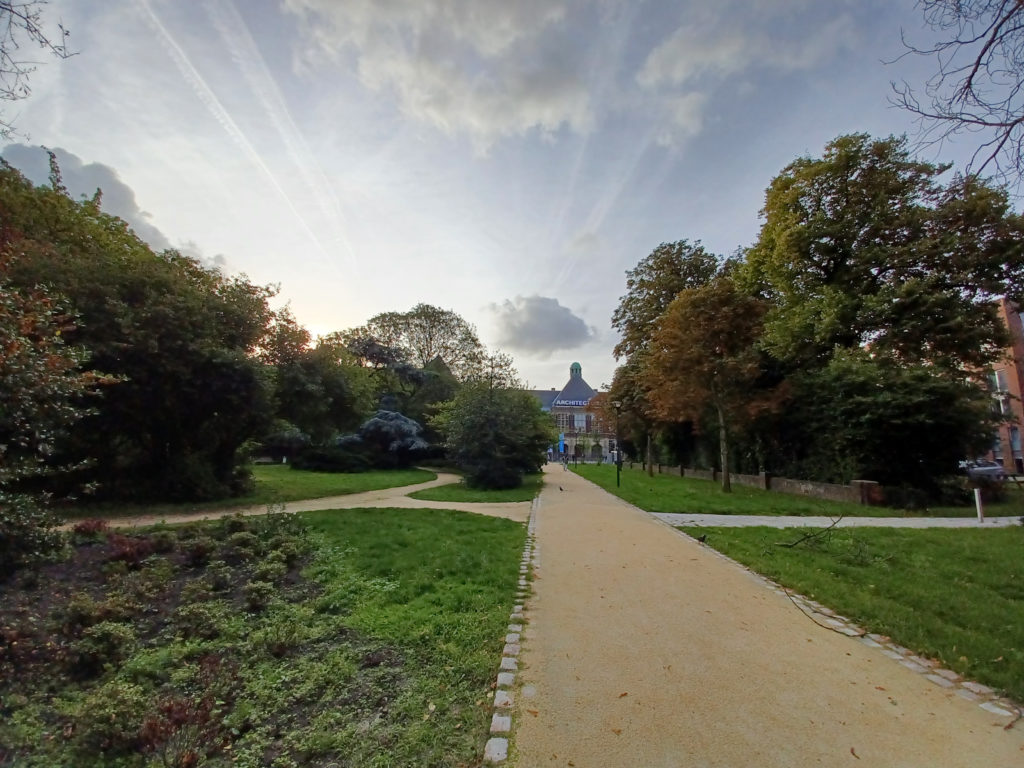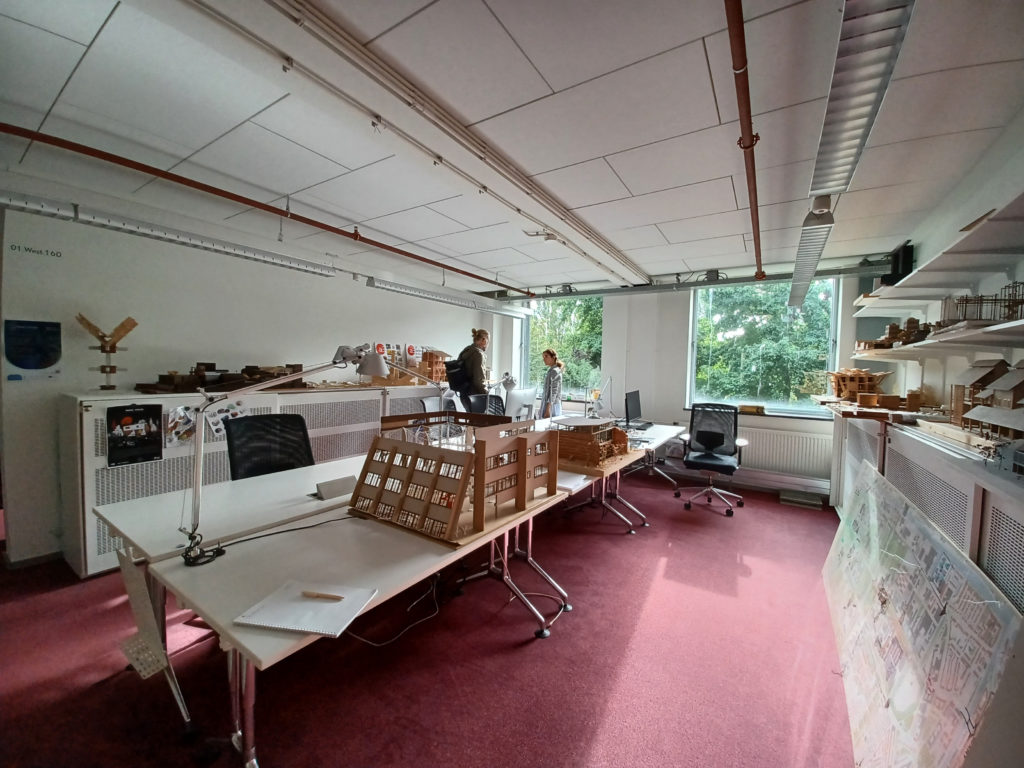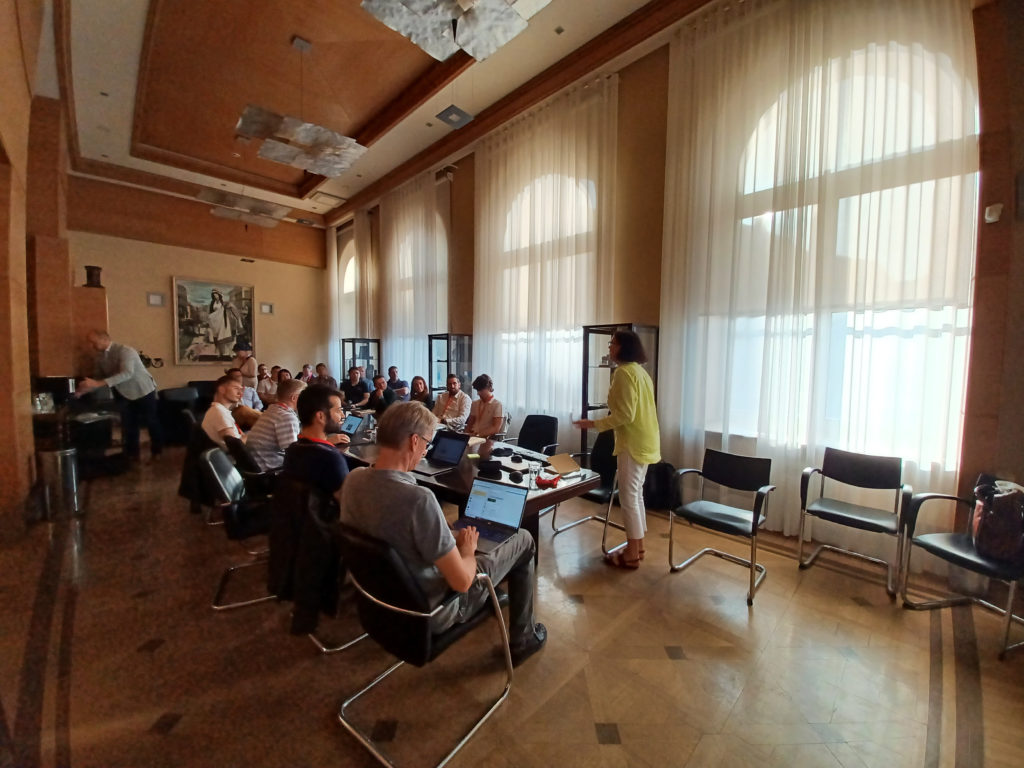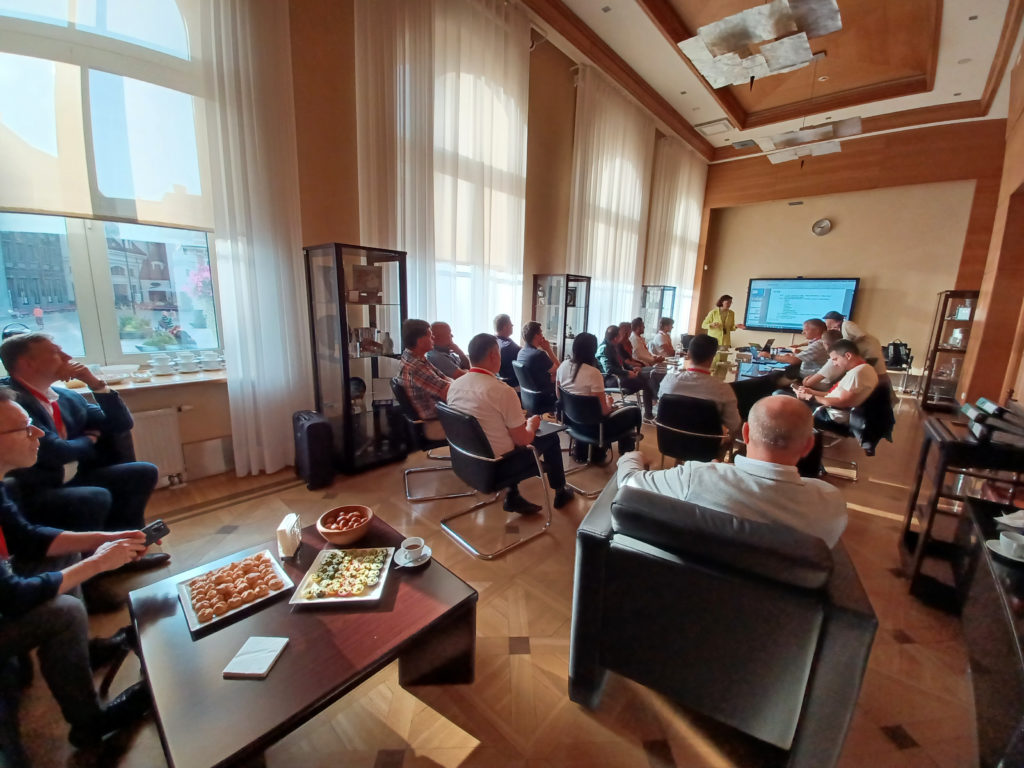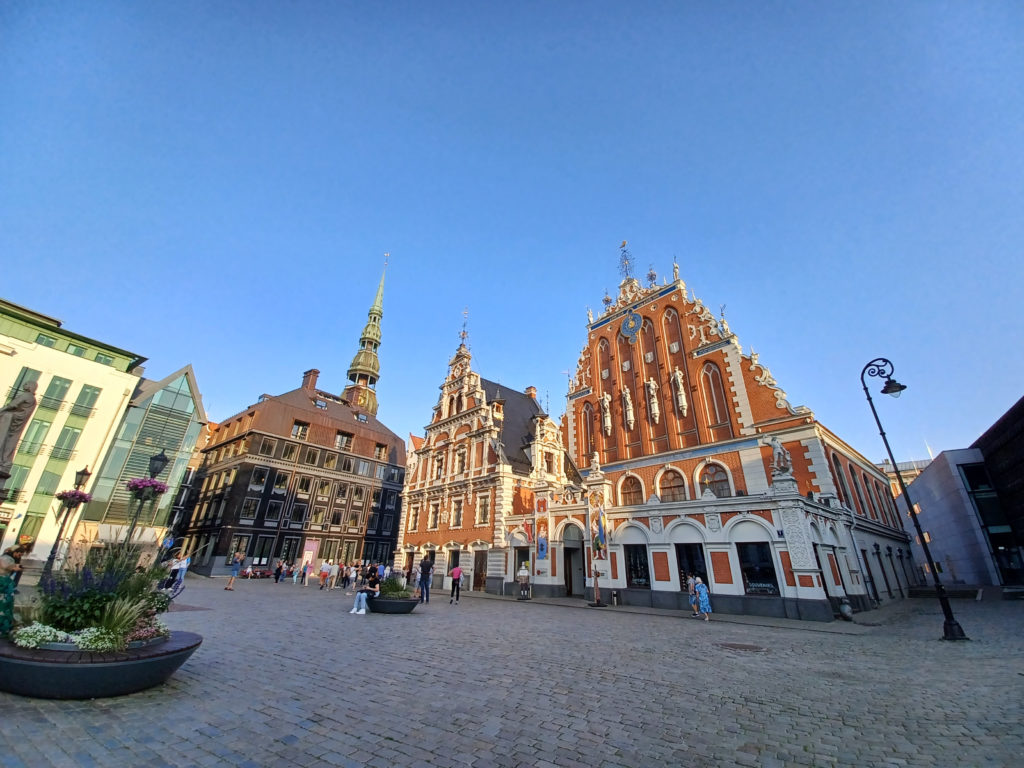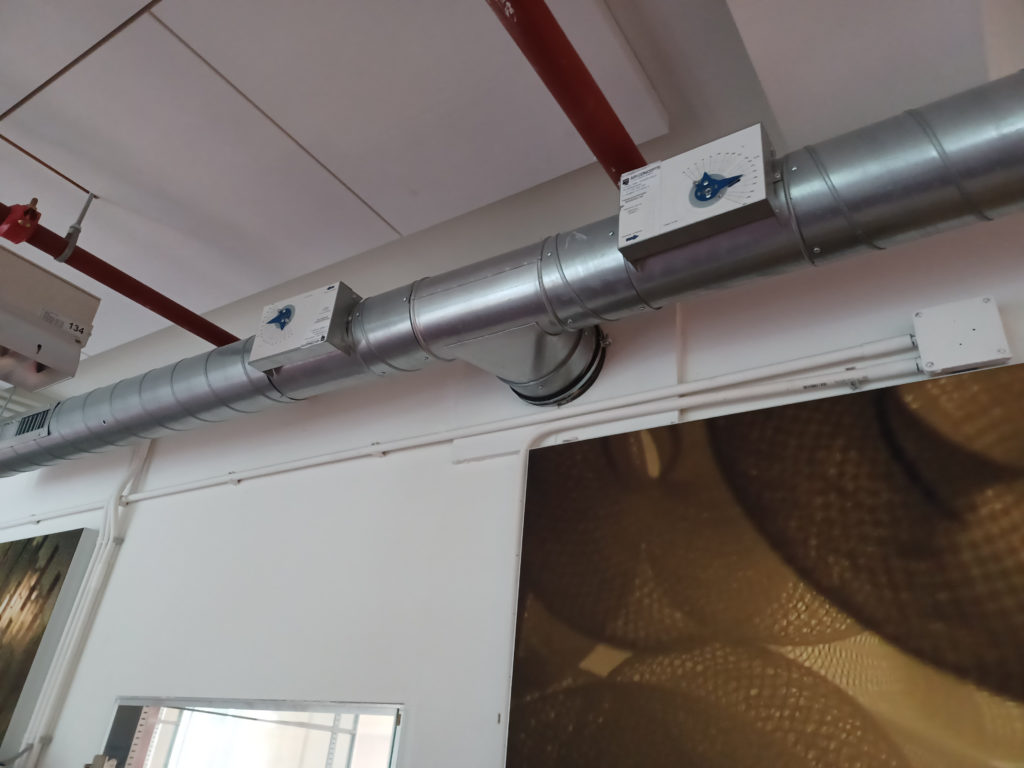SMARTeeSTORY showcased at Sustainable Places 2024 in Luxembourg
The conference Sustainable Places features topics each year that shape how we think about cities and the built environment. The 12th annual edition of Sustainable Places SP2024 was held over three days in a hybrid format from 23th to 25th September 2024, with the in-person sessions hosted in Luxembourg.
SMARTeeSTORY, represented by our coordinator Matteo Porta from RINA, was presented at 2 workshops brought together by NEBULA and REGEN Projects:
Unlocking the Renovation Wave: Deep-renovation solutions
This session showcased seven EU projects that developed solutions for deep renovation and discussed cross-cutting issues embracing circularity, inclusiveness, and aesthetics. These projects developed solutions for deep building renovation, including innovative packages, circular approaches, and digitalized business models.
SMARTeeSTORY was presented, along with a short run down of the key good practices and lessons learned so far in the project in face of challenges associated with implementing the SRI methodology into concrete use case such as historical buildings. Challenges were discussed regarding data availability, necessity of pre-intervention monitoring, or matching the SRI methodology to KPI estimations.
Projects in this session: REHOUSE EU – FORTESIE EU Project – Chronicle Project – EBENTO project –
SMARTeeSTORY Project – INPERSO Project – MULTICARE EU project.
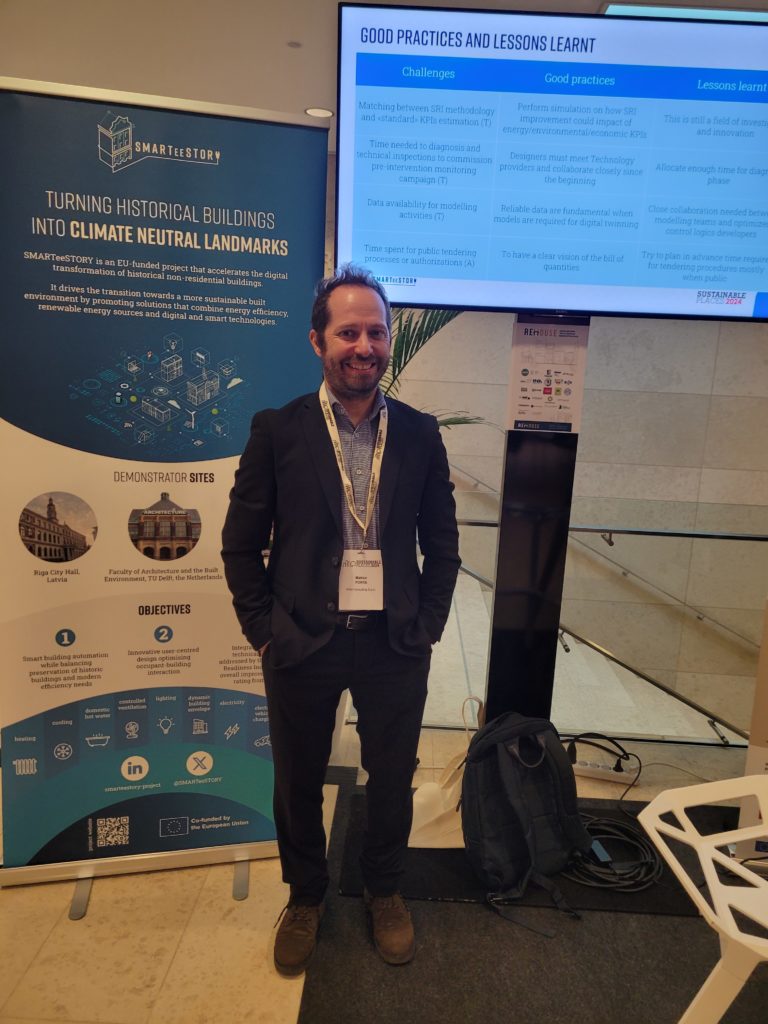
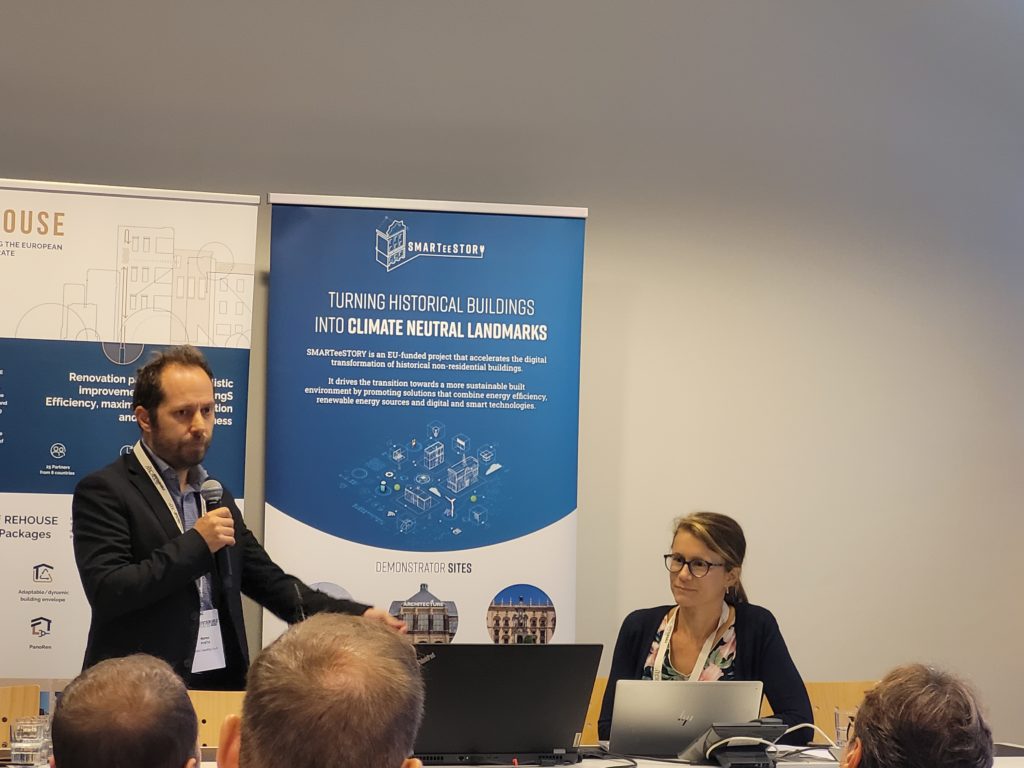
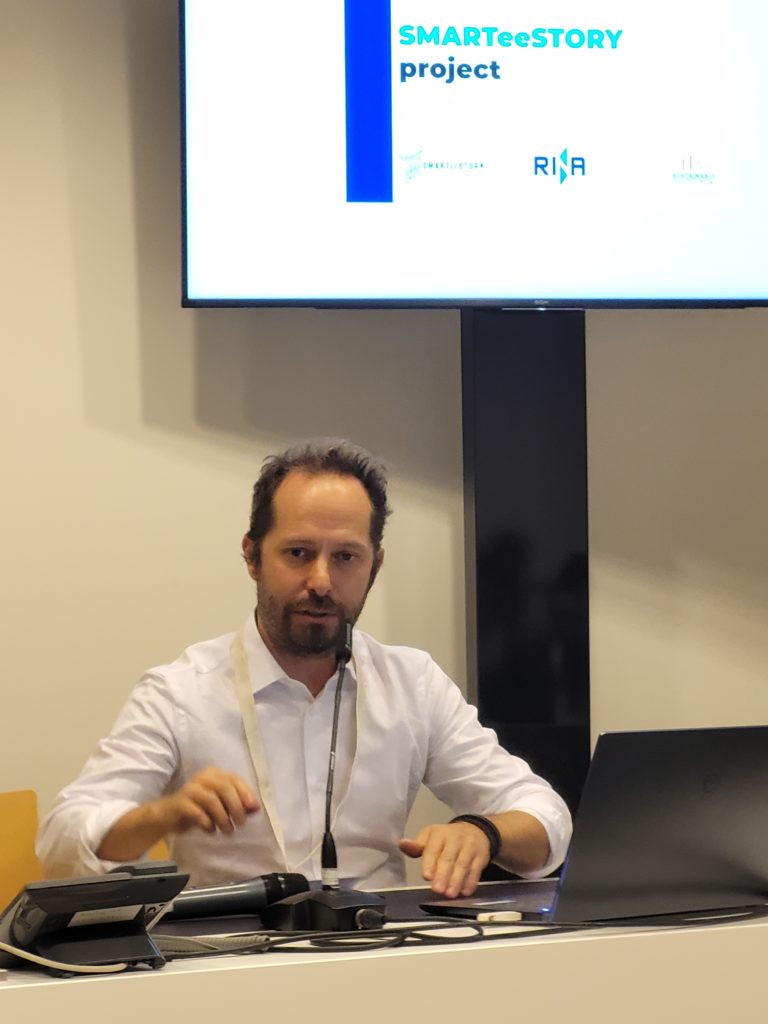
Regeneration Workshop: Crafting Sustainable and Inclusive Neighbourhoods
The REGEN project hosted a workshop to showcase Built4People (B4P) projects responding to the call for "Solutions for the sustainable, resilient, inclusive, and accessible regeneration of neighbourhoods enabling low carbon footprint lifestyles and businesses". The workshop focused on neighborhood regeneration towards sustainable, inclusive, and low-carbon environments, focusing on innovation actions in buildings and urban environments. Matteo Porta presented the basics of the project including the scope, targets, current state, and next steps in the near future.
Sharing a stand with the REHOUSE project, the event proved to be a great platform to network among similarly minded projects, while raising awareness on the project work.
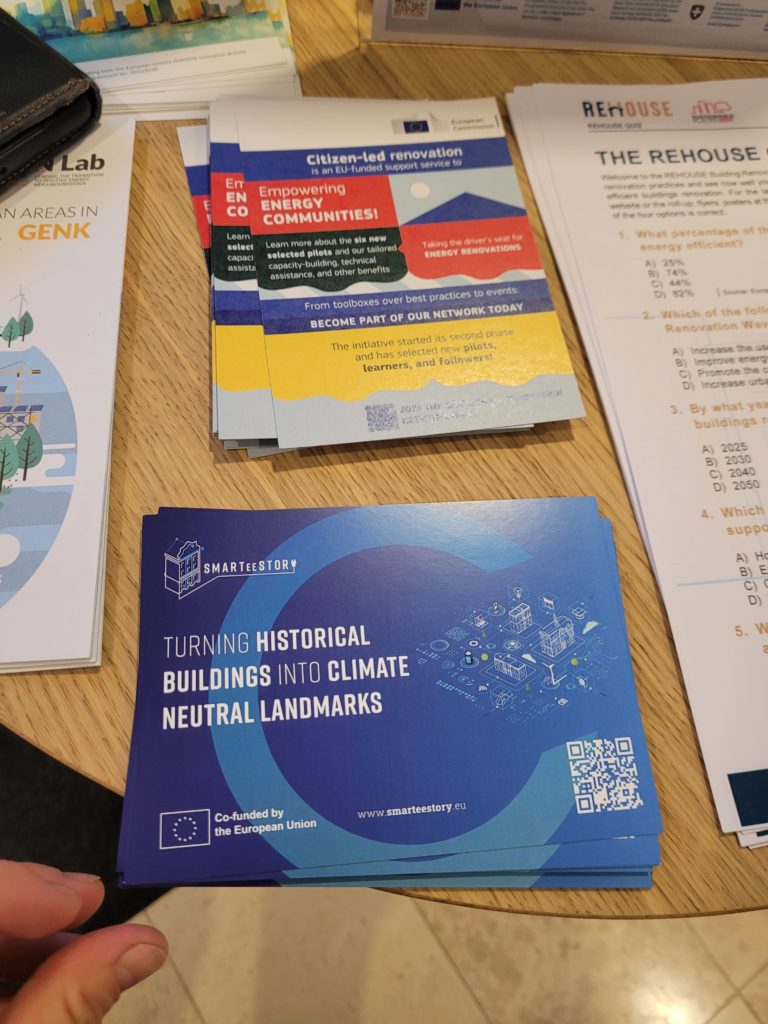
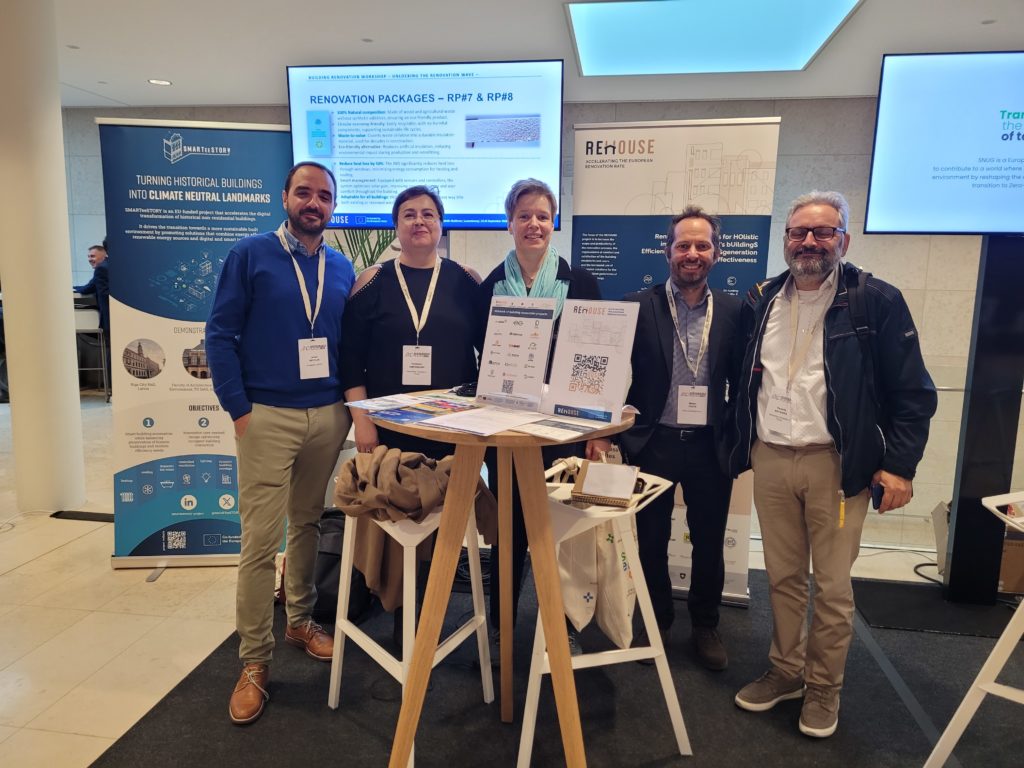
In SMARTeeSTORY, TECNALIA leads Work Package 3, which aims to develop a new approach to operational modelling, optimisation and control of buildings.
The work package aims to develop a new approach to operational modelling, optimisation, and control of buildings by creating methods for understanding and managing large amounts of data. This will result in a tool that will help researchers and organisations analyse and use data effectively. Building Performance Simulation (BPS) is a powerful tool to represent various aspects of buildings’ performance. Lets explore the BPS and discover how SMARTeeSTORY partners use BPS to turn historical buildings into climate-neutral landmarks.
What is building performance simulation?
Building Performance Simulation (BPS) represents various aspects of buildings’ performance using physic-based models. These models consider key building characteristics, such as geometry, constructive materials, heating, ventilation, and air conditioning (HVAC) systems, lighting, and occupancy. By applying mathematical equations based on physical laws, these models simulate building energy behavior under different conditions, which can be simulated using commercial tools like DesignBuilder, EnergyPlus, TRNSYS, Modelica, and APACHE.
By simulating dynamic interactions between energy and mass flows within the building and its surroundings over time, BPS models are capable of characterising energy use, thermal behaviour, and other performance aspects such as illuminance or indoor air quality. Thus, they serve as effective tools for building performance asessment for both designing new buildings and assessing existing ones.
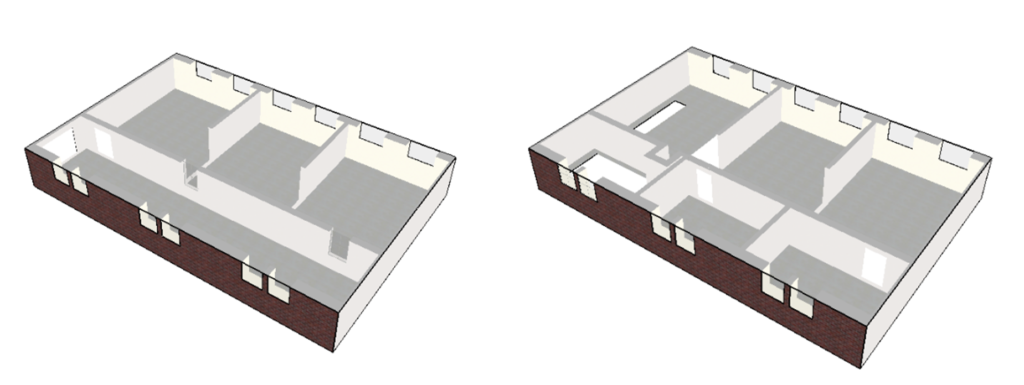
Creating a BPS model
In order to build up a physics-based model, some input parameters must be provided to the tool. These parameters represent various factors affecting internal ambient temperature and indoor environmental quality of a building. They include:
- External weather conditions
- Thermo-physical characteristics of the building envelope
- Occupancy patterns
- HVAC, DHW and lighting systems description
(generation and distribution sub-systems, and terminal units) - Operational patterns for HVAC, DHW and lighting systems
(setpoints, schedules, etc.) - Specific control strategies for HVAC, DHW and lighting systems
- Other energy transformation, transmission, and emission components
- Passive solutions such as: smart blinds, external shading, window opening, etc.
[ HVAC: Heating, ventilation, and air conditioning; DHW: Domestic hot water ]
Best practices for the data gathering process
Creating accurate BPS models involves comprehensive data gathering and a thorough understanding of the building. This is important in existing buildings where building operation in reality may not match the predicted behaviour. Key data gathering steps include:
- Assessing data availability and accuracy (geometrical, energetic, operational).
- Conduct technical visits to verify building operation and collect user behaviour data.
- Engage with maintenance and energy management teams.
- Consider new monitoring systems if needed.
When gathering data, some required information for the energy model may be incomplete. To address this lack of data the following methods are recommended:
- Building Data/Information: This includes physical structure, system characteristics, and internal gains. When real building data is lacking, consider using reference values from public databases or local building policies.
- Weather Data: when measured weather (e.g., outdoor temperature, solar radiation) is not available, consider using public databases from nearby weather stations.
After data gathering, the calibration reduces the performance gap between simulated outputs and real data. In this regard, following steps could be helpful:
- Assume Input Parameters: Document assumptions.
- Verify Simulation Results: Check if predicted operating results (e.g., temperature, humidity) are reasonable.
- Compare Energy and Demand Results: Use metered data for comparison. Assess differences between simulation and calibration data.
- Revise Assumed Input Data: Adjust assumptions to improve predicted results.
[ steps based on Option D of the International Performance Measurement and Verification Protocol: Concepts and Options for Determining Energy and Water Savings; Volume I: Revised March 2002 (nrel.gov) ]
BPS modelling for building retrofitting
BPS modelling can support various phases from the design to operation, even to test renovation solutions from the digital or physical point of view. In renovation, BPS modelling could focus on the design process and code compliance assessment or even real-time building control as part of the retrofitting.
In SMARTeeSTORY, accurate physic-based models are being developed for different purposes. At an early stage, physic-based models will generate synthetic data to calibrate the long- and short-term prediction models used in following stages. Afterwards, these models will serve for long-term assessment of building performance, to be used throughout the pre-intervention energy assessment and target setting process as well as performance assessment along the operation of SMARTeeSTORY. At last, the physic-based models will create an emulation environment to test control logics and algorithms before their deployment at real building level.
Lessons learned
From our BPS model development experience, we have identified some aspects that should be considered for anyone intending to develop these models, especially in the renovation scenario:
- Data Limitations:
- Lack of architectural and physical data leads to model inaccuracy and reduced reliability.
- Developing physics-based models is time-consuming. Communication with facility managers or knowledgeable individuals is crucial.
- When modelling small areas within a building, consider boundary conditions (e.g., surrounding rooms).
- Defining Objectives:
- Clearly define model objectives and functionalities:
- General performance assessment (e.g., HVAC sizing, envelope comparison)
- Specific element assessment or control (e.g., smart shading, strategies)
- Collaborate with partners to address specific needs (e.g., SMARTeeSTORY intervention packages).
- Clearly define model objectives and functionalities:
- Importance of Monitoring Data:
- Real data (consumption, indoor temperature, weather) ensures accuracy and reliability of models.
Authors: Antonio Garrido Marijuan, Noelia Vicente Gómez, TECNALIA
Organisation:
In SMARTeeSTORY, TECNALIA leads the Work Package 3 “Modelling, Optimisation and Smart Predictive Control”.
TECNALIA is a private, independent, non-profit applied research centre of international excellence. TECNALIA is the leading private and independent research and technology organisation in Spain and one of the largest in Europe.
TECNALIA has one goal: to transform knowledge into GDP, meaning wealth to improve people’s quality of life by generating business opportunities for industry. TECNALIA is committed to generate major impacts in economic terms, by means of innovation and technological development, addressed by six business divisions covering the economic sectors of Energy, Environment, Industry, Transport, Construction, Health and ICT.
Let’s have a closer look at the significance of historic buildings. Why is it crucial to prioritise their refurbishment, and what challenges do these projects typically encounter, making them so complex to manage?
What is a historical building?
A historic building is a structure of significant historical or artistic value that is officially protected to prevent alteration or destruction. These buildings may include castles, museum, city halls, universities, and other types of structures that are evidence of a community’s heritage. In the European Union (EU), a historical building is typically defined and protected under various laws and regulations aimed at preserving cultural heritage. While specific definitions may vary between member states, there are the following common principles and criteria outlined in EU directives and conventions: Cultural Significance, Age, Protected Status, Architectural and Artistic Value, Intangible Heritage, and Public Interest. So, within the EU context, the definition of a historical building includes not only physical characteristics, but also wider cultural and social considerations aimed at safeguarding Europe's rich and diverse heritage for present and future generations.
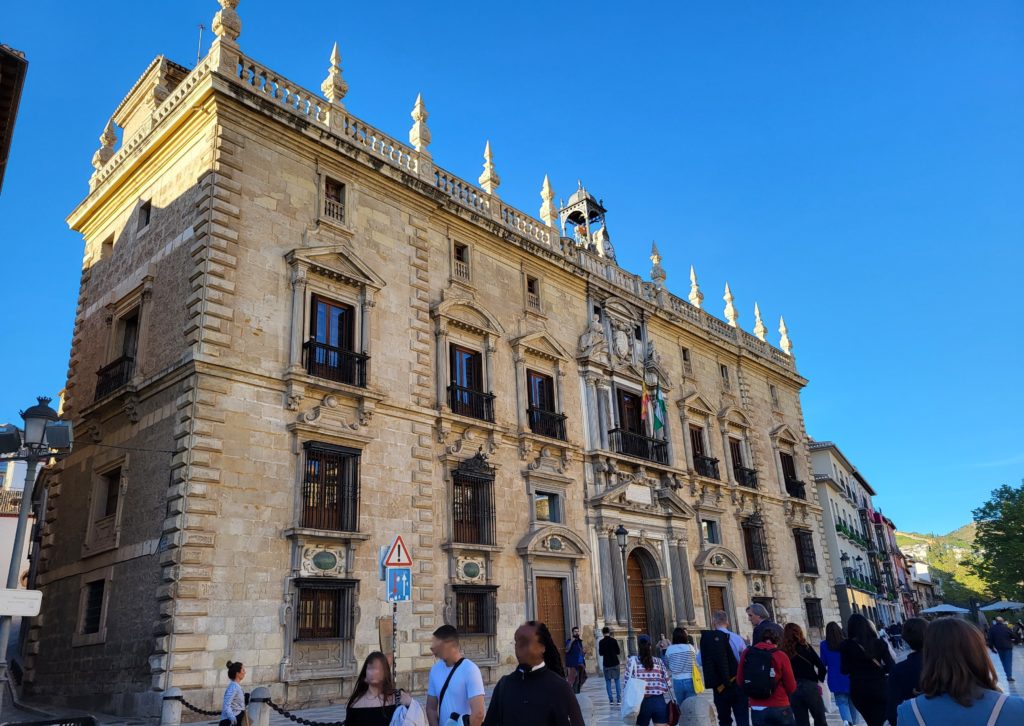
Why should we target the refurbishment of historical buildings?
Europe is home to countless historical buildings that are not only architectural marvels but also symbols of cultural heritage. However, many of these buildings face challenges in terms of energy efficiency while preserving at the same time their unique character (i.e. façade, building integrity and structure, materials, etc.)
However, the refurbishment of historical buildings is crucial for achieving energy savings and contributing to the European Union's long-term objective of full decarbonisation. By implementing sustainable and digital strategies, these buildings can significantly reduce their carbon footprint while preserving their cultural significance and aspect. Moreover, the green and digital transition in the refurbishment process can enhance the quality of life for citizens working in historical non-residential buildings by creating more comfortable, efficient, and technologically advanced working spaces.
In the SMARTeeSTORY project, we target the digitalisation of historical non-residential buildings (where energy renovation it is not an option), since the respective buildings are important landmarks in European cities. They thus present a unique opportunity to demonstrate the advantages of green and digital transitions to the wider public. By targeting these types of buildings, we aim to show that energy efficiency and sustainability can be effectively achieved even in structures with traditionally low energy performance and high consumption. This is often due to outdated technological systems and construction limitations related to their historical context. RINA Consulting S.p.A (RINA-C), coordinator of the project and actively involved in its implementation, will support the refurbishment of historical buildings, particularly through their digitalisation, by developing optimisation and control algorithms for the Delft and Riga demo sites. These algorithms will be integrated into the SMARTeeSTORY platform, also developed by RINA-C, enabling control of equipment, actuators, and devices via wireless technologies. This integration will contribute to energy savings and reduced CO2 emissions in historical buildings.
Thanks to SMARTeeSTORY, we will be able to show how sustainability can be achieved in historical non-residential buildings, while still preserving their historical integrity.
What are the main challenges faced during the refurbishment of historic buildings?
The refurbishment of historical buildings is a complex process that involves a range of challenges such as preservation against the need for modernisation and regulatory obstacles and approvals. One major obstacle involves the restrictions due to Preservation Laws, both at the European and National levels, designed to safeguard the authenticity and character of these buildings. The approval process can be complex and needs a close collaboration with local historic preservation boards, government agencies and local authorities. Additionally, another big challenge is represented by the delicate balance between preserving the building's historical integrity/aspect and the contemporary standards for functionality, comfort, and safety. So, the refurbishment of historic buildings is a process that involves several actors dealing with a range of challenges, from preserving historical integrity to addressing structural and environmental issues, managing costs and community engagement, and securing regulatory approvals.
In conclusion, the refurbishment of historical buildings is a crucial step towards achieving the European Union's decarbonisation goals while preserving the cultural heritage of Europe. By embracing sustainable strategies and the digital transition, projects like SMARTeeSTORY can contribute to creating more energy-efficient and technologically advanced working spaces that will also enhance the quality of life for citizens.
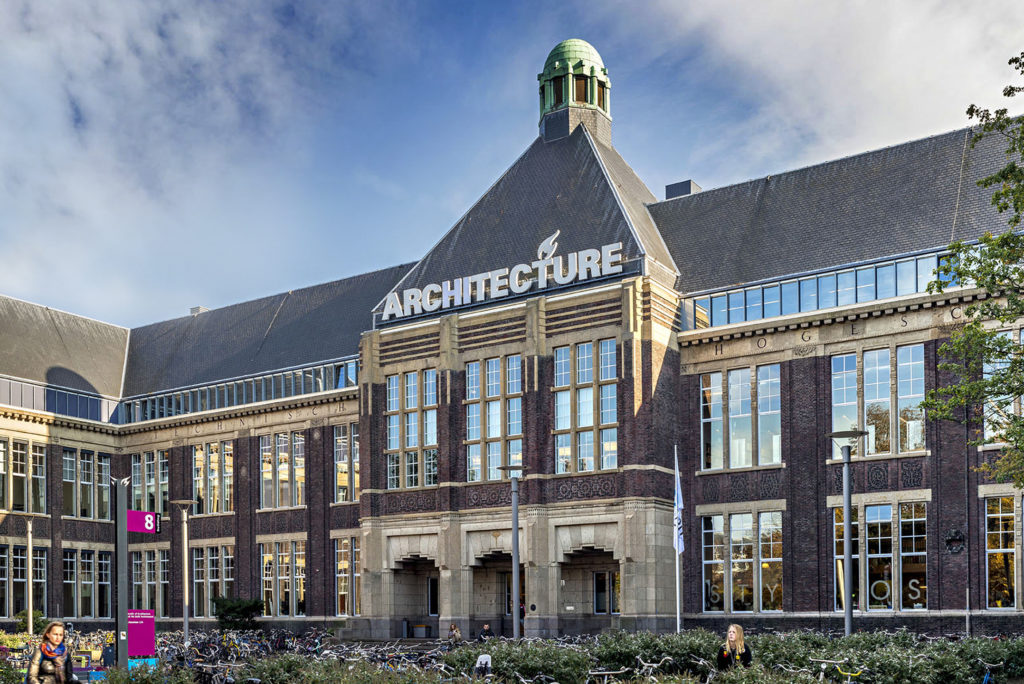
Organisation
RINA Consulting S.p.A. is the Project Coordinator of the SMARTeeSTORY EU funded project and the work package leader of WP4 on SMARTeeSTORY Integrated Building Automation & Control System. Within the SMARTeeSTORY project, RINA-C will cover the required informatics skills to develop the digital software architecture of the SMARTeeSTORY system and, as a major consultancy, will bring relevant industrial know-how on project demonstrators and extensive experience in setting up a sound exploitation strategy for project results.
RINA-C is a global corporation that provides services across the Energy, Marine, Certification, Transport & Infrastructure and Industry sectors through a global network of 200 offices in 70 countries. Over the past 10 years (2012-2022), RINA-C has actively participated in approximately 500 R&D and industrial innovation projects, spanning regional, national, and EU initiatives. As a result of this extensive engagement, RINA-C has achieved recognition as the second top industrial participant in Horizon 2020 projects across Europe, based on the number of participants.
Authors: Heidi Percuoco & Matteo Porta, Rina Consulting S.p.A.
Dissemination and communication – what’s that? Most of us know that it has something to do with sharing information to the outside world, but what exactly does it entail? Whereas communication is a rather known concept, it is a bit different for dissemination. So, let’s have a closer look at what dissemination actually means, how it differs from communication and – most importantly – what we are doing to make the communication and dissemination activities of SMARTeeSTORY a real success!
Communicating project ambitions and activities
In the context of European projects like SMARTeeSTORY, communication refers to the spreading of general information to the broad public. In communication, we make use of an easy-to-understand language, omitting highly technical words that might only be understood by professionals. The goal is to communicate our project ambitions, activities and its main messages to an audience as wide and diverse as possible, reaching especially those usually less targeted by the project’s topic, such as children, young people, elderlies, or socially deprived groups. In SMARTeeSTORY, we especially target the end-users of our three demonstrator buildings, that is, the people working in, studying at or visiting the Royal Chancellery of Granada, the Riga City Hall and the Faculty of Architecture at TU Delft. The methods of choice are both traditional tools like flyers, open houses or press releases as well as modern channels like digital (or hybrid) events, videos or social media activities.
And what about dissemination?
When you want to learn more about dissemination and you google the term, you sometimes end up learning more about “spreading a disease” (and I think by now, we have all had enough of that!). Only when you search for it in a scientific context, you learn about its other meaning – the one that is used in projects funded by the European Commission like SMARTeeSTORY. In this case, dissemination refers to the spreading of (technical) information to a specialised audience. In other words: we inform about scientific or technical details, results or methods in a technical language to a professional audience that is well versed in the respective topic. This can be in the form of scientific publications, technical articles, webinars, workshops or site visits.
How to make your D&C activities a success
Now we have set the ground for what communication and dissemination means. So, let’s discuss how we can make our dissemination and communication (D&C) activities a real success! We think that there are three important rules to follow:
Number one is that we always have to tailor our planned activities to our individual project and to our respective target audience – every single time. This means that we cannot simply copy and paste a previously developed strategy and apply that to SMARTeeSTORY. On the contrary, we always need to consider questions like “What is the main message of SMARTeeSTORY and how do I want to communicate that?” or “Which audience groups do I want to reach with this activity/with SMARTeeSTORY as a whole?”. Then, we have to think about appropriate tools and activities. Otherwise, our project will drown in the crowd and the very valuable results of SMARTeeSTORY will not be spread to the interested or important audiences so that others can learn from our solutions.
Number two is that all partners must work together! This means that the D&C leader works together with all partners of the consortium to make the project communication a success. While we as the D&C leader are mainly responsible for planning and managing all activities (such as the development of a recognisable branding, an intuitive and informative website, visually attractive promotional materials, etc.), the partners support us in regularly providing updates from their local activities, by actively sharing project materials, socials media posts, newsletters, etc. Because only when all SMARTeeSTORY partners work together, can we assure a high visibility of our project activities and therefore successfully disseminate, communicate and later exploit our project’s results!
Number three is that we always need to be up to date when it comes to the latest (and most successful) communication tools or methods. For example, 15 years ago, nobody would have thought of posting short 280-character statements on the internet to inform about a product. And 10 years ago, nobody would have expected that today, communication would highly depend on the sharing of pictures and videos (instead of texts) to promote a project’s outcomes. The world is always changing, and we need to stay on top of our game and educate ourselves about what’s trending if we don’t want to be left behind.
SMARTeeSTORY blog
Of course, there are many more secrets to delivering a successful project like SMARTeeSTORY. Therefore, from now on, we will share insights like this blog every other month! Each time, the blog will be written by a different project partner with a different focus, but always giving you an insight glimpse into our project activities and partners.
Organisation:
Steinbeis Europa Zentrum is the work package leader of WP6 on dissemination, exploitation, communication, replication, training and certification activities within SMARTeeSTORY. Through our involvement as either partner or coordinator in more than 80 projects in 2022, Steinbeis supported consortiums in transnational technology transfer, organised international conferences and information days concerning European research and innovation programmes, promoted projects via diverse dissemination and communication measures as well as supported partners with successful exploitation of the project’s results.
Author: Bettina Remmele, Steinbeis Europa Zentrum
Webinar Recording: Smart solutions to accelerate the digital transformation of buildings
On Tuesday, February 13, BUILD UP hosted a webinar organised by the BuildON and SMARTeeSTORY projects on ‘Smart solutions to accelerate the digital transformation of buildings’. During the event, project partners from BuildON and SMARTeeSTORY shared their vision on the role of digitalisation in the decarbonisation of buildings.
The webinar was structured into three sessions. During the introduction, Sofía Mulero from CARTIF stated that ‘the main scope of the projects is to contribute to the enhancement of green and smart buildings, in which users have a great role. It is important to provide user-friendly solutions that support users in taking decisions’.
The first session, ‘BuildON introduction, Smart Transformer Toolbox, validation activities’, delved into the key aspects of the project. Sofía Mulero from CARTIF, and Nikos Dimitropoulos, from the National Technical University of Athens (NTUA) explained the relevant role that BuildON plays in providing highly replicable solutions to equip buildings with intelligent capabilities.
The second session, ‘SMARTeeSTORY Introduction, Key expected results, pilots’, gave an overview of the project. Heidi Percuoco and Matteo Porta, from RINA-C, shared their perspectives related to the optimization of the building’s energy performance. Heidi Percuoco highlighted that ‘SMARTeeSTORY automatically detect building users and inform the optimization control servicers on their specific references’, and Matteo Porta made emphasis in the need of reliable data.
The centrality of users in smart building solution
The final session, ‘Smart buildings, user interaction and engagement’, saw Alessandra Luna from TU Delft and Chiara Fonio from ICONS focusing on how smart building solutions are present in everyday activities and the relevance to engage users to ensure a user-driven design of smart buildings.
The webinar ended with a Q&A session moderated by BUILD UP where the speakers answered to the challenges encountered during the 8 months that the project is already running.
Social media profiles:
Build UP - LinkedIn
Build UP - X
BuildON - LinkedIn
BuildON - X
Republishing of original article posted by BUILD UP: The European portal for energy efficiency and renewable energy in buildings [Webinar: Smart solutions to accelerate the digital transformation of buildings | BUILD UP (europa.eu)]
Right before the end of the year, the SMARTeeSTORY partners reevaluated the SRI (smart readiness indicator) values for each of the three demo sites, keeping in mind the original values from the proposal phase.
For this re-evaluation, we have decided to use a simplified calculation method (calculation method B instead of method A). This has established a foundation for the interventions to be implemented within the project in the near future.
In the initial phase, Key Performance Indicators (KPIs) were identified and grouped into five categories: Energy and Environmental, Indoor Environmental, Economic, Informatic, and User-related. Following this, a detailed analysis was undertaken to ascertain the relevance of each KPI to individual demo sites, considering the feasible SRSs. Additionally, preliminary methods for quantifying each KPI, involving the measurement or calculation of required parameters, were delineated.
In the concluding phase, a methodology was crafted to evaluate the impact of the SRI difference between baseline and future scenarios on KPI values. An analysis was conducted to establish the correlation between KPI categories and the Impact Criteria utilized in SRI calculation methods. Subsequently, a comprehensive list of specific SRSs affecting each KPI was compiled. This comprehensive approach establishes a sturdy foundation for the assessment and enhancement of performance across diverse domains within the SMARTeeSTORY demo sites.
In September 2023, several SMARTeeSTORY project partners met in Riga and Delft for technical site visits of their demonstrator buildings. The aim of these visits was to verify the practical implementation of the interventions foreseen during the proposal phase. The respective local partners, Riga Energy Agency and TU Delft, organised meetings between internal technical staff and the SMARTeeSTORY partners to clarify several aspects regarding the feasibility of the interventions. These meetings were the first of many to come, laying the foundation for the concrete work towards achieving the project’s objectives.
During the technical site visit to Riga on 13 September 2023 served to have a closer look at the city’s town hall. More specifically, the project partners looked at the building’s heating & DHW, cooling and ventilation systems, electricity domain, lighting, dynamic building envelope, electrical vehicles, building management and control system.
On 19 September, in Delft, the partners inspected the building installations of the Faculty of Architecture and Built Environment at TU Delft, looking at heating, lighting, dynamic envelope, ventilation, power meters, produced/consumed energy, monitoring and control as well as sensors.
The 13 European partners of SMARTeeSTORY met from 22-23 May 2023 in Genova, Italy, to kick-off their Horizon Europe-funded four-year project. The meeting provided an opportunity for the consortium to introduce themselves, discuss objectives, and establish a roadmap for the project's successful completion.
SMARTeeSTORY accelerates the digital transformation of historical non-residential buildings in Latvia, the Netherlands and Spain. By combining energy efficiency, renewable energy sources and digital and smart technologies, the project strives to turn local historic landmarks into climate neutral buildings while, at the same time, preserving their unique identity.
Historical buildings are important landmarks of European cities, which is why they play a crucial role in showcasing the benefits of the green and digital transition to the general public. Due to their high energy consumption and challenging retrofitting requirements, however, a dedicated approach is required. SMARTeeSTORY therefore applies a replicable and customisable technological infrastructure to maximise energy efficiency and occupant well-being based on the historic buildings’ unique features and potential.
“For best results, SMARTeeSTORY demonstrates the proposed digital solutions in three real-life demonstration sites located in different climatic regions, where energy renovation is not an option. We will gather and share lessons learnt so that there will be even more digitalisation of historic buildings in the future, across Europe and beyond.” - Matteo Porta, RINA-C, Project Coordinator
SMARTeeSTORY actively promotes the exchange of knowledge and best practices among stakeholders, including building owners, energy service companies, and public authorities. To do so, the project will organise workshops, site visits, training sessions, and networking events to foster collaboration and knowledge sharing among related initiatives and projects, as well as with external audiences.
Subscribe to our newsletter


